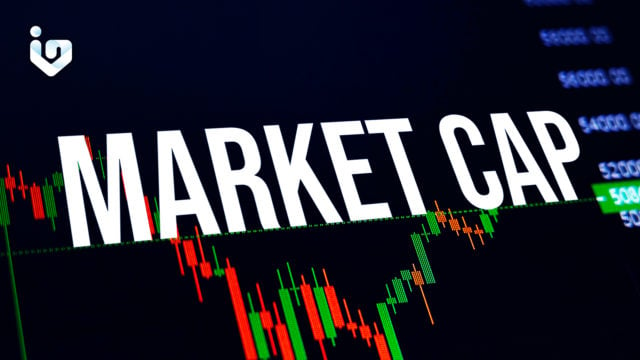Market capitalization or Market Cap measures the entire worth of a company’s outstanding shares of stock. This is essential for investors because it indicates a company’s size and potential growth opportunities.
In this article, let’s examine the market capitalization and how it can benefit you to understand and utilize it.

What is the Market Cap?
Market Cap measures the total value of a company’s outstanding shares of stock. To calculate it, you multiply the total number of outstanding shares by the current market price of a single share. Determining this is important for investors because it helps them identify a company’s size and risk level. It also assists in portfolio diversification and stock selection.
Investors use this to measure a company’s size based on its outstanding shares’ dollar market value. Investors commonly prefer this metric over sales or total asset figures. The Market Cap is used in acquisitions to analyze if a takeover candidate provides a fair value to the acquirer.
Types of Market Cap per size
The Market Cap can help determine stocks to consider and how to diversify your portfolio with companies of different sizes. It’s a helpful metric for risk assessment due to its simplicity and effectiveness. Here are the types categorized by their size:
- Large-Cap Stocks: Companies with a Market Cap of $10 billion or more are called large-cap or big-cap. They are major players in well-established industries and have a long track record. Investing in large-cap companies may not result in huge short-term returns but can provide consistent long-term growth and dividend payments. Examples of large-cap companies include Apple Inc., Microsoft Corp., and Google parent Alphabet Inc., although this sample is constantly changing.
- Mid-Cap Stocks: Mid-cap companies generally have a Market Cap of between $2 billion and $10 billion. They are established companies that operate in an industry expected to experience rapid growth. Mid-cap companies are in the process of expanding. They carry a higher risk than large-cap firms due to their lesser-established nature but are attractive for their growth potential.
- Small-Cap Stocks: Small-cap companies typically have a Market Cap of $300 million to $2 billion. They may serve new, and niche markets and are often younger. Due to their size, markets, and age, they are considered high-risk investments. Economic slowdowns affect them more due to limited resources.
How Market Cap can impact your decisions as an investor
Market Cap can have a significant impact on an investor’s decision-making process. Large-cap stocks are generally more stable and less volatile than mid-cap and small-cap stocks but may have lower growth potential. On the other hand, mid-cap and small-cap stocks are often more volatile but can offer higher growth potential.
For investors looking for stability, large-cap stocks may be a good choice. They have established business models, strong financials, and a proven track record. Value investing, which involves seeking out undervalued stocks with solid fundamentals, is a common strategy for investing in large-cap stocks.
Mid-cap stocks can offer a balance of stability and growth potential. Growth investing, which involves seeking out companies with high earnings growth potential, is a popular strategy for investing in mid-cap stocks.
Small-cap stocks can offer the highest growth potential but are also the most volatile. Investors looking for aggressive growth may choose to invest in small-cap stocks. One common strategy for investing in small-cap stocks is the momentum strategy. It involves buying stocks that have already experienced substantial price increases, hoping the trend will continue.
Ultimately, the choice of investment strategy will depend on an investor’s risk tolerance, investment goals, and overall market outlook.
How it can affect your road to Financial Freedom
Understanding Market Cap is crucial for your financial freedom because it helps you make informed investment decisions. It can help investors identify companies with different stability and growth potential levels and choose appropriate investment strategies accordingly. However, it is important to acknowledge that Market Cap is not a perfect metric and has potential drawbacks or limitations. Despite these limitations, Market Cap remains a widely used metric for evaluating stocks. This is because it can be a valuable tool for investors looking to make informed investment decisions.
By understanding market capitalization’s potential benefits and limitations, investors can make more informed decisions and build diversified investment portfolios.
Aside from your real-time PSE data access, let’s make your stock market journey easier with InvestaPrime!
For as low as P324, you can easily scan over a hundred stocks, set price alerts and have an automatic list of leading stocks to access in just a few taps:
Subscribe to Prime today!

